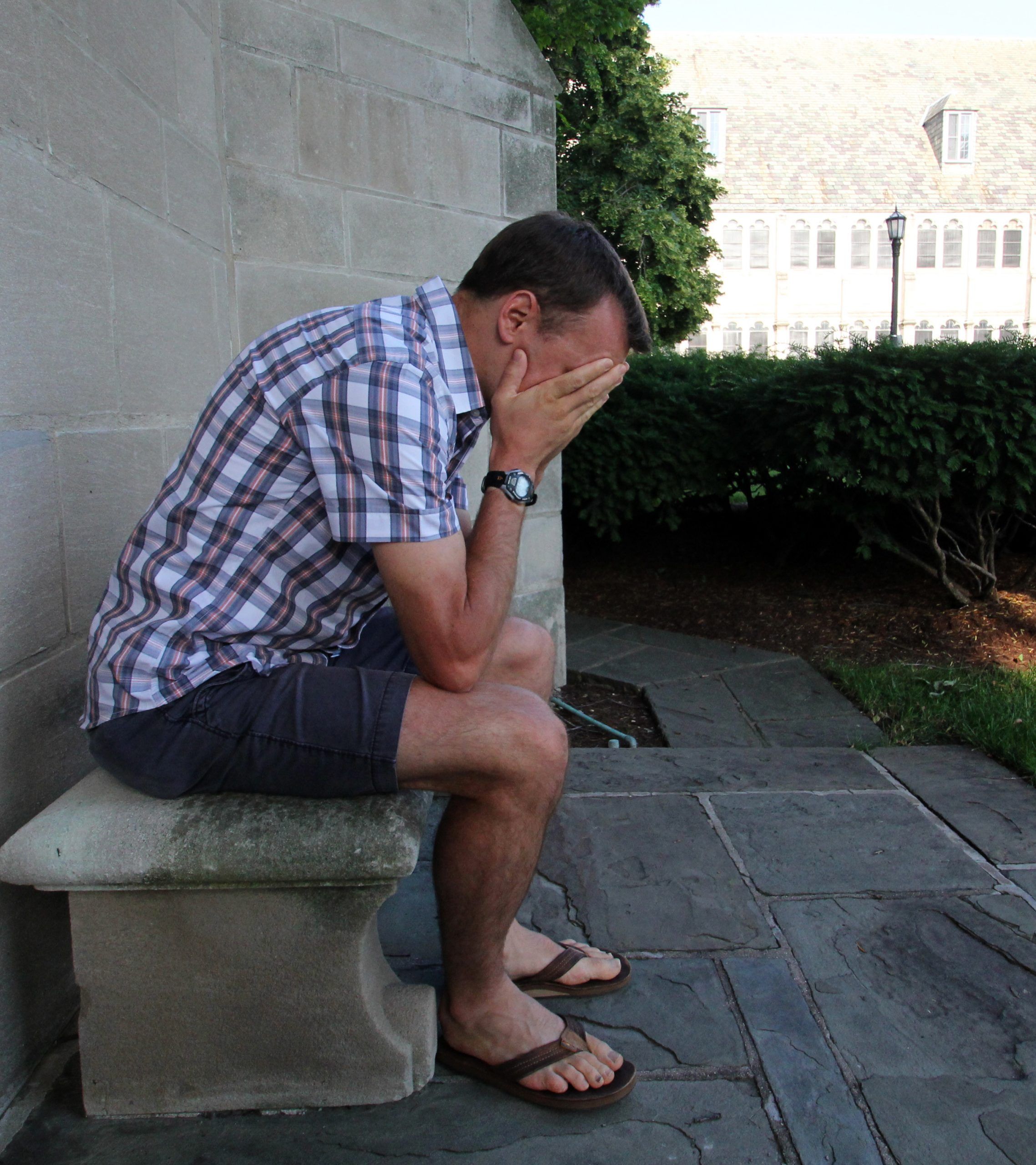On this episode, I was able to geek out with on of my favorite colleagues to talk about our favorite therapy: EMDR.
- Our path to receiving EMDR training
- What is EMDR?
- Different types of trauma (little t and big T)
- Getting to the root of troubling body sensations and
- How EMDR can be helpful for people with anxiety
Resources and links:
Sarah’s Counseling Practice: Willow Tree Counseling, licensed in TN and KY
Sarah’s book: Healing Negative Wounds: The Impact of Trauma
More information about EMDR
Book: The Body Keeps the Score
Support the show
More Podcast Episodes
Transcript of Episode 17
Welcome to Hope for Anxiety and OCD episode 17. If you’re new to the show, we are all about reducing shame, increasing hope, and developing healthier connections with God and others. I’m your host, Carrie Bock.
And today on the show, I got to interview and have a conversation with my good friend, Sarah Slade. She is like my professional soul sister. She and I do very similar work in terms of the trauma work that we engage in and have a favorite therapy that we’re going to talk about on the show today, which is called EMDR for short. This may be a therapy that you’ve heard of, or it may be completely new to you. But I hope that our conversation is enlightening. Hang around for the end, because I’m going to tell you about some exciting episodes that are coming up in the future.
Carrie: Welcome to the podcast.
Sarah: Thanks for having me.
Carrie: This is going to be a really fun conversation where we get to geek out about some of our favorite topics so I’m very excited about it.
Sarah: Yes, me too.
Carrie: You and I met several years ago and when we were working in community mental health, we were driving around to people’s homes and working with kids and their families and got into some very interesting situations a lot of times.
Sarah: Yes, absolutely.
Carrie: Complete utter unpredictability like we could show up at the house and we didn’t know if our client was going to get in a huge fight with their parents or if they had just been suspended from school or there was some other crisis going on. If somebody got arrested. You had to kind of be quick on your feet and we never quite knew what was going to happen.
Yes, complete trial by fire.
Carrie: Yes. You kind of like go out there with the fire extinguisher. Any fun without going into client details. Any fun, random in-home stories that you have.
Sarah: Some that probably are not one of those therapists humor, probably ones that are not super funny, but I just remember the ones that stuck out to me the most were the ones I remember that were like really dirty places that we had to and then just, you know, we’re therapists. So I want to get on the floor. I want to play with the kids. So just being around on the floor, and some not so clean environments. I remember coming home and stripping in my garage before I went into the kitchen area like just getting rid of all the clothes that I had on and thinking back now, I’m like, that is so bizarre that I would go through that and enjoyed it so much like as much as we did.
Carrie: Right. It was not boring. I will tell you that it was far from boring. I don’t know if you had those rice trays. They were like the mock sand trays, but they would get rice like everywhere and then we’d be like trying to clean it up like discreetly sweep it up at the end of the session or some kind of powder on the rice and the kids would literally dig their whole hand, arm, and everything and come out kind of half white and we’re like, “Wait, stop doing that. Your parents are going to kill me.” Oh, those were good times. So now you still work with a few children, but more so adults and a few adolescents sprinkled in.
Sarah: Yeah, I definitely don’t advertise just adults, but it seems to be that that’s kind of just become my focus or just more of where I’m getting my referrals from.
Carrie: And so, as we were working in this program, we ended up getting trained in a few different forms of trauma therapy and one was trauma-focused, CBT cognitive behavioral therapy. And we did some arc training, attachment regulation, and competency. And we also got trained separately in EMDR and found that we had a passion for trauma and for EMDR kind of became our go-to therapy that we really utilize probably most often.
Sarah: Absolutely. EMDR is one of those therapeutic techniques where you either like, are all for it or you’re afraid of it and you don’t ever use it and we would definitely the ones that like dove right in.
Carrie: Yeah, I think that really came from seeing people who needed relief from their trauma and when we got trained in trauma-focused cognitive behavioral therapy, it was kind of like you have to write this trauma narrative. I mean, you don’t write it, the kids write it and you write it down for them as they tell it to you. You really start to realize that that’s great maybe if you had one traumatic incident that might help clear some things up, but it never really, for me, fully addressed like the body sensations that come with experiencing trauma, like, “Okay. Maybe I can think differently about my trauma. I can see maybe that it wasn’t my fault,” but every time certain memories come up or there’s a trigger then all of a sudden your stomach’s in knots or you start breathing heavily and you get overwhelmed and it seems like some of the cognitive based therapies just didn’t really fully address those. That was kind of one of my problems that I was having and you can speak to this too with the clientele that we worked with. They weren’t single incident trauma folks. They were kids who had maybe foster care and adoption journeys, or they were children that had ongoing sexual abuse or other types of things that weren’t just kind of one or two incidences and they were happening at a time of development, which definitely shaped their development and how they were processing that. I mean, you can kind of speak to that a little bit more about what your experience was with some of those other therapies and things.
Sarah: Yeah, absolutely. I feel like that definitely these sensations, the body sensations piece was missing with your regular CBT, but I also agree we were working with so much complex trauma that narratives didn’t really encompass that or you were trying to figure out how do we write narratives to all of this? Like lifelong trauma. They’re doing a narrative over their whole life so far in and out of foster care trauma after trauma. So, I think that when EMDR came along, I think it was such an easy thing to jump onto because it was like the answer to that problem, addict issues, how do we deal with complex trauma. How do we kind of hit a lot of traumas with one processing?
Carrie: Right, there was this nice piece too of we can go to kids or families or adults and say, “You can process through this trauma and I don’t have to know every single detail.” Whereas when we did narratives, even for situations like sexual abuse, we were trying to get some pretty specific details and that was rough. It was rough on the kids. It was rough on the families. It was rough on us as the clinicians even having to hear that. There’s something just didn’t quite feel right about that to me, of like, do I really need to know all of those things that happened? Or can we somehow process this without having to know all that information.
Sarah: Yeah, definitely. That was one of the hardest things especially when you’re working with young children and you’re having to get very explicit details of what that was like for them. EMDR, I think that’s one of the things that even now, my clients, even adult clients love the most about EMDR is they’re like, “Oh, I don’t have to tell you what I’m thinking of.” They almost can’t believe it like “you’ve got to be kidding me.”
Carrie: Right, and in your experience, you’re near an army base and so you see a lot of military members, and sometimes they can’t tell you what happened. That is not anything that they can dialogue about, and so to still be able to receive this trauma treatment where they can get relief from that distress is a really beautiful and amazing thing.
Sarah: Yeah, and I think with this population with a military population, first responder population as well, there’s almost like this mentality that they already talk about these events with their comrades and that they almost get kind of put down or it gets desensitized of like, well, that’s not that big of a deal this is what I experienced today or this is what I went through. So the fact of retelling that for a lot of those guys and girls is pretty traumatic in itself. Like that piece of like, I get to keep this to myself.
It doesn’t matter what I bring up. It doesn’t matter if I feel like it’s a huge trauma, big T or if it’s a small T you’re not going to, as a therapist, you’re not going to say anything to them. You’re not going to make them feel bad and they can just process through it.
Carrie: Right. Yeah. So let’s talk about that a little bit. I think there’s some language in the literature when it comes to trauma where people will talk about the big T trauma. Those are things like where your life was threatened, your life or someone else was threatened or impacted and a lot of times we use big T traumas to determine whether or not people have PTSD. But what we’ve also found is that there are a lot of incidences that profoundly impacted us that are what they would call small T traumas and that may have been something like bullying at school. It may have been a time where you didn’t get something that you needed from your primary caregiver where you really needed to be seen and heard and understood by them, they weren’t available there for you. And I’ve almost kind of shifted some of my language and working with clients to just start saying childhood wounds because when I say trauma, people think, “Oh, trauma” that’s like a big word. That’s like, send you to the ER or something. That’s what we associate with it.
Instead of no, sometimes like we all have childhood wounds that we have to figure out how to deal with and some were more impactful than others and when you have a thousand tiny cuts through your childhood that’s just as bad as someone who had a big T type trauma.
Sarah: Yup. Absolutely, and helping clients understand like that the brain doesn’t keep a, it doesn’t keep like a gauge of that. It’s not thinking, Oh, that’s not big enough so I’m not going to raise any alarms or send out the fire alarms. So I think helping them understand the brain doesn’t distinguish between that, you know, trauma is trauma. And when you feel like when your brain feels like there’s a threat, whether it’s a perceived threat or a real threat, your brain doesn’t distinguish between the two. Perceived and real is the same thing and your brain’s going to protect you and both of those situations.
Carrie: Right. So let’s talk a little bit about what EMDR is because maybe there are some people that are listening to this that have never heard of that form of therapy and it’s actually probably the worst named therapy out there because the name doesn’t really help you understand the process. So the name, the EMDR stands for eye movement, desensitization, and reprocessing. I’m curious, what’s your short snippet that you tell to clients about what EMDR is?
Sarah: Yes, it’s hard to explain. I feel like I always preface it by like, you will understand what I’m talking about once you’ve experienced it one time, then you’ll be like, okay, yeah, I get what Sarah was trying to tell me. But I always try to go with, I liked, I liked the brain I’m a nerd in that way. So I always try to go with that because I think especially, and I’m going to talk about anxiety and your podcast about anxiety, especially my people with anxiety because I feel like they can understand that piece a little bit better than trying to connect it to PTSD cause that’s what people connect it with.
So I like to really try to get them to understand like how the brain processes trauma, where trauma gets stored in the brain, and how we can have those visceral somatic sensations, even when we know we’re safe. So cognitively we’re saying to ourselves, it’s okay, I’m safe, nothing bad is happening, but our body and our amygdala are saying, nope, don’t believe you, not listening.
I’m going to protect myself. So I think I just like to try to get them to understand, like, that’s the body process and that’s what EMDR is doing. It’s trying to get the emotional part of the brain and the cognitive part of the brain to finally talk and listen to each other.
Carrie: That’s a really great way of saying it. I’ve explained in the past, it’s about getting your body and your emotions and your brain all on the same wavelength. So even though, you know, like you said, I’m safe, I know I’m safe and okay but my body is still holding that trauma and we know a lot more now about how trauma is stored in the body.
You can go read Body Keeps The Score. It’s a great book and I’ll put that in the show notes because we understand that we know we have to do something somatically for our bodies if we’re going to be able to heal from those pieces of trauma. We can’t just talk about it because we’re going to be missing something.
And so what EMDR is using, it’s using what we call bilateral stimulation, and that’s where the eye movements part comes in the name because a lot of times we’re using eye movements, but people also use tapping, there’s little kind of buzzers that you can hold on to. There’s headphones sometimes that’ll play a tone on one side and then the other, and that is helping the brain kind of I guess loosen up some of that material in order to get it stored instead of the short term, the traumas happening now memory section of the brain, and it gets rerouted to long-term storage so that it’s not up on the forefront.
Sarah: Yeah. Yeah. Absolutely, but definitely one of those where I have lots of clients where they’re like, okay, yeah, now I get it after I did it one time. Now I understand what you were talking about. It seems so strange and bizarre. Yeah. Yeah.
Carrie: It’s really an interesting process because everyone looks a little bit different and I say that because I know some people after listening to this podcast, we’re going to go Google EMDR, and they’re going to find some videos and, you know, people are going to be
you know, super emotional and break down crying, and sometimes that happens and then other people have maybe milder reactions. And so sometimes people will compare, say like, Oh, I don’t even know if this is working, but we’re always able to gauge like in the present, whether or not it’s working by present symptoms.
Sarah: Yeah, I feel like every session is completely different, which is why another reason why I love EMDR so much for a clinician side of it because every client does process different and no one’s going to look exactly the same and the way the brain is going to struggle and how they process and what barriers it’s going to throw up
and how it’s going to try to protect that person. It blows my mind and amazes me every time, how strong the brain is and how much it wants to protect even when it’s doing something that’s negative or negatively impacting the client, it’s trying to protect them.
Carrie: So some of those, all of those things that were happening during the trauma, like the way that they protected themselves at the time to stay safe and to survive and get through it as well as the body sensations, the emotions, the thought processes, all of those get churned up in reprocessing and people are able to, it’s kind of like the brain digesting material as some people have alluded to in the past. So, yeah, it’s really good stuff. Do you remember when you started using it? Were you skeptical? Like, is this really working?
Sarah: I think the very first time I remember I did it after that first training. There’s a two-step training with this and so you go to that first-weekend training and you’re like, this is terrifying and then, like go out and do this
like, and you’re like, no, I don’t know what I’m doing. I don’t want to go out and do this, but they’re like, “Yes, you have to. Use it on your first client that you see.” So that’s what I did. I was like I’m either going to be terrified of this or I’m going to jump right in and I remember that client because it was so impactful. She processed so deeply in a level like that I hadn’t experienced, not even at the first training that I like walked out of my office and burst into tears. Wow. I was just like, Oh my gosh, this is amazing. Like what just happened?
Carrie: That’s incredible. And so to give people an idea, you go on this weekend and it’s like a Friday, Saturday, Sunday, weekend training.
And you’re with a bunch of other therapists and the trainer and there may be a couple of assistants there depending on the size of the group. And the first half you get a lecture on here’s EMDR, here’s how it works, etc, etc, etc and then the second half of the training in the afternoon, you come back from lunch and you’re literally practicing on each other. You have no idea what you’re doing, but you’re diving into emotional deep waters. And so every therapist who does EMDR has had the experience of having it done on themselves, which I feel like is so valuable so that we understand what it’s like going through those waters ourselves. And you’re right, they do tell us, okay, now just go practice on somebody and I’m always like, okay, I’m a little hesitant. So here I am working with people’s children and I went out and I was like, okay, I am really asking parents if I can use their kid as a Guinea pig, that doesn’t feel good. But I did, I asked his parents, I said, Hey, I just learned this new therapy technique
and I think it would be good for your child, you know, do you mind? And it was really like, for me, it was like a God moment alignment where she was like, Oh, I’ve had that. Like the parent had EMDR, so she was like open to it and she’s like, yeah, if you think that would be helpful for my child and, you know, go for it.
So I thought, okay, good. And I always like, whenever I learn something new, I always ask permission for my clients and I always feel like very upfront with them about like, Hey, this is just something new, kind of new I’ve learned. I don’t know all the intricacies of it, but I think I would benefit from you and people have been super receptive to that.
Like, okay, well, you know, if you think it would benefit let’s try it. Like, what do we have to lose at this point? And so, yep I got more experience and more training and you know, you go to a second weekend and then you do the same thing all over again, basically and you learn more in-depth about how to improve your, your EMDR skills.
And then there’s further consultation and, and phone calls and, or in-person meetings that can happen with people that know more about you. So it’s quite a process to get trained in EMDR. It’s not an easy type of thing, but I think there are like you said, there are some therapists that get trained in it and are overwhelmed by it or kind of scared or nervous about it.
And so they don’t really utilize it as much. And then other people really kind of latch onto it as a therapeutic model they want to align with. So talk with me a little bit about how you’ve seen EMDR be helpful for clients with anxiety in your practice.
Sarah: Yeah, so I just kind of, we’re talking about trial and error or just kind of trying modalities and that’s how I started with clients with anxiety because I tend to get a lot of people with post-traumatic stress disorder, but then I also tend to get a lot of people with anxiety disorders and I was doing some cognitive behavioral stuff with them and then I just decided once I felt more comfortable with EMDR and I felt like, okay, I feel like I can apply this protocol too, because the more I learned about EMDR, the more I felt comfortable.
And the more I just learned about anxiety and PTSD, I was like there, I mean, we know they’re in the same DSM category. PTSD is an anxiety disorder. So they’re all stemming from the same kind of symptoms. So that’s kind of the way that I approach EMDR with anxiety of helping people understand, like we’re going to identify those somatic symptoms that you have with your anxiety and then we’re also going to connect it with a negative belief, because I think most of the time, even if there’s not a traumatic event that they can get to, or like this event happened and that’s what started my anxiety or a phobia type situation, there is still a negative belief. They still feel like I’m going to die
or I’m not safe that anxiety is causing that negative belief to come forward. So I link those two together so we can link negative belief with the body sensations. Sometimes we can have images with anxiety. If they have like an image of the last time or the first time they felt that anxiety just like we do a trauma, I will float them back and get them there. But if not, we stick with just that negative belief and that body sensation. And in my experience, and I know you have experience with it too, they process through almost exactly the same as they would with trauma.
Carrie: Yeah, really great for panic disorders too. Sometimes we’ll go back and process maybe the first panic attack that someone had, some types of the most recent, just kind of, if someone has panic disorder, this can be very helpful because that is so somatic.
And sometimes people will say, well, I have panic attacks and it just seems to come out of nowhere, but a lot of times we’re able to kind of find some kind of root or something to work with that we can utilize with EMDR, which is really great. I think a lot of the clients that I see have what I would say is developmental trauma, which is really hard to explain to people what I do, because if I say, well, I work with people with trauma
they’re like, oh, like people in the military, like PTSD and I’m like, well, no, not, not typically for me. I’m like typically it’s people who have grown up in a home, say for example, like with alcoholic parents or who’ve just grown up in an environment that was very chaotic. Maybe there was a lot of arguing or fighting in the home or domestic violence, or it could be a variety of different things that happened.
Maybe their parents were depressed and neglectful but there were these incidences where they felt like they couldn’t really get what they needed. And growing up in a chaotic environment can cause people to feel out of control and like they have to latch on to control somewhere that can happen with anxiety, that can also happen with OCD as well.
OCD gives you kind of like this false sense of control at times. Like, oh, okay, well, these compulsions, you know, I can well, lock the door, you know, a few times and that’s something that I, I feel some relief from because I’m engaging in that activity. What’s interesting about the anxiety is a lot of times people feel like, well, you know, I’ve been living with this for so long, I’ve had it my whole life, a lot of times people will say, I remember being anxious as a child and it’s just kind of followed me. And instead of looking at it as, oh, well, this is just something I have to live with and I have to tolerate and manage I’ve seen a lot of clients be able to make huge shifts and larger strides than they had made in the past with talk therapy or just doing some CBT surrounding the anxiety.
And that’s been really incredible to see. Obviously, everyone’s process is different. So there are going to be some people that still have to manage their anxiety, but they feel more confident when they have those symptoms come up. They’re like, okay, but now I know I have some skills at least that I can utilize and I can, a lot of what we do in EMDR in the beginning before we even get to the trauma part is we really work on like those calming down our body, learning to be in touch with our body, and those types of things. So valuable.
Sarah: Yeah, absolutely. I was about to say that, like, that’s what I think, even if the processing doesn’t work for them, they learn self-regulation and they learn that I can be in control of this anxiety, this anxiety doesn’t get to control me which I think EMDR teaches that in such a powerful way with those things at the beginning that you’re teaching them how to build that anxiety up and then calm themselves down and regulate that anxiety.
Carrie: One of the things I wanted to say about EMDR and OCD that I really enjoy is that you’re able to really, and this is true for anxiety too, but like you’re really able to get to the root of the issue. So many times we’re kind of, we’re trying to pull the weed up but we’re not getting all the way down in there to the roots of your emotional and psychological issues. And a lot of times I’ll talk about this on a solo episode because I really want to do a solo episode on this is like ERP is great for a lot of people with OCD, but they are specifically exposing themselves to a variety of issues and it’s like this game of playing whack-a-mole because their obsessions will shift.
So it’s like, okay, I got to expose myself to this issue and then now all of a sudden my obsession has shifted over to something different and I’ve got to expose myself to that now, whereas EMDR really gets to that route. A lot of times has to do something with control, um, a time where somebody felt out of control.
And if you’re able to really get down to that and process through some of those past memories it really helps people be able to engage in the exposure and be willing to do that first of all. But then also it makes that exposure process easier when they go to do it because they’re not fighting all the body sensations. It really helps clear up a lot of that kind of just body stuff that’s in there.
Sarah: Yeah. Yeah, and I think similar happens with anxiety, like they’re really learning how to control and regulate those body anxieties and figure out where the root cause is. I think you’re right, a lot of times, almost all the time with anxiety, I hear that people say like, I don’t know where it comes from.
I just get anxious out of nowhere, you know? So I think it can be so powerful to work with them, to try to process and figure out, oh, there was a start to this, you know, that this did start at this point in time and try to put some control in them cause it is all about control. They’re trying to get control, but in ways that don’t really work for them.
So finding how they can control and they can control their body and that feels really powerful.
Carrie: Right. I also just want to make a point too, unrelated to what we were just talking about, trauma therapy really is a process and it’s a paced process and I say that because sometimes people go to a therapist and they get super overwhelmed and super flooded, and that’s not the goal of what you’re trying to accomplish.
You know, this should be paced in a way that feels comfortable to you at some level, I’m not going to say it’s completely going to be comfortable because you’re going to be pushed outside of your comfort zone, but not to the point that you’re overwhelmed or can’t manage it. So if you’re coming out of a session with your therapist and you feel absolutely and completely unglued, it’s super important for them to know about that so that they can help you manage after a difficult session or make sure that you have enough skills to use in between sessions.
Sarah: Yeah, and I think that’s super important, especially when you have a client that’s very engaged, very motivated. They want to get in there and start working. It’s easy to skip that self-regulation portion and want to go right into processing stuff but EMDR is set up in a way that it stages and that you need to hit those stages for a reason because you really
gauge everybody is different and their self-regulation, and how they can handle what their tolerance is and handling some of those emotions and so you do need to spend some time being really open with a therapist and exploring what your kind of gauge looks like and how you self-regulate.
Carrie: Absolutely. Do you have any advice for people if they are looking for an EMDR therapist, how do they find the right person for them you think?
Sarah: Yeah, that’s hard. I think it’s just like any other therapist, right? I tell my clients all the time, therapy is like going on a blind date. You just never know who you’re going to get. You sit down and sometimes you might halfway through realize this is not the best fit for me. A lot of times clients feel very uncomfortable with saying, “This isn’t a good fit. I think I want to find somebody else.” I think they worked really hard to get there. They might have spent months trying to get someone to email them back, trying to get on someone’s schedule. So then I think they are just like, “No, I’m staying with this and I’m going to make it work” when I don’t think that’s how it should be. I think that it should be very open and if they don’t like the therapist, they should try another one until they do. There is a therapist out there that they’re going to click with and feel very comfortable with. So I think same is true for EMDR. You’re looking for people with those qualifications. Definitely, you’re looking for somebody who’s completed both of their trainings and has that certification, I would say. But also just everybody’s style is going to be different.
I’m sure. My EMDR style, even though we’re doing the exact same protocol, my style is different than your style. So just finding somebody that you feel comfortable with and safe with.
Carrie: Yeah, that’s really huge. If you don’t feel like you click with the person, it’s okay to try somebody else. Sometimes you know that the first session and other times may take you a few sessions to kind of get a good feel and understand that. I think on the counselor side, we’re also trying to get a feel of, is this somebody that’s kind of in my wheelhouse. And usually, we try to do that before the first session.
Are they coming in with an issue that I typically work with or have experience with? Does it look like somebody that I can help because obviously it’s not gonna be ethical for us to take on somebody that we don’t think we can help. Keeping all that in mind. I think this is a really great start. And hopefully people will look more into EMDR therapy If they’ve been struggling with anxiety or OCD, or maybe they’ve tried traditional ERP and it’s been really tough on them and want to look at maybe another option, hopefully, this will open up people’s options to know that there are many different types of therapy out there, and you have to find what’s gonna work for you to get you to where you need to be.
So I know that you wrote a book. Can you tell us a little bit about it?
Sarah: Yeah. I wrote a book about trauma. It’s been a couple of years now and the goal behind that book was I really just wanted my clients or future clients to understand the trauma process. And in that book, I actually go into detail about different trauma therapies. So the book starts off with explaining the brain, explaining the body and how trauma impacts us and how it might occur. And then I go into what are some different modalities that you could use when you’re going into therapy. I wanted to write it in a way that anybody could understand it. You didn’t have to be a clinician. You didn’t have to love trauma, dealing with trauma like I do that. You could understand exactly what is happening and what these therapies are going to look like. I think it was a good book for clients that may not know what modality might work best for them and they want to know a little bit about what CBT is, what EMDR is, what psycho-education is. Kind of going into all those different things that they could encounter in therapy.
Carrie: Okay and tell us the title of the book.
Sarah: Yeah, so it’s called “Healing Negative Wounds, The Impact of Trauma.” It’s on Amazon. There’s a Kindle version and then there’s also a paperback version.
Carrie: Awesome. We’ll put the link in the show notes if people want to look it up and so forth.
So at the end of every podcast, I usually like to ask our guests about a story of hope that they would like to share and it’s just a time where you received hope from God or another person.
Sarah: Yeah, I was thinking about that and so my story goes back a little bit further because the thing of hope that I wanted to talk to you guys about was something that just happened last month. But I think in order to set up the story, I need to go further back to the original one. So the original was in 2016, I lost my mother-in-law to colon cancer and that was a super hard time for everybody in our family. She was pretty young and I’ve known her since I was 16 years old. So she was definitely like a surrogate mother to me. I’m sure if any of the other listeners have ever watched somebody go through the dying process especially the cancer dying process it’s very heart-wrenching and I think it’s definitely one of those times that people question God. Why is this happening? Why is this happening to us? Why is this happening to her, to a good person? That kind of stuff. A lot of our family members were going through that process.
And she was very much faithful to the Lord, and it was really powerful to watch her go through that process because people around her were questioning, but she never questioned as she went through that process of like, “It’s okay, I’m going to see the Lord.” So that was amazing in itself and then the story I wanted to share with you, which I thought was pretty amazing.
This last month, my sister-in-law, her daughter, was due at the end of the month, I think Thanksgiving time but the baby came early and the baby came on her mom’s birthday. How powerful is that, right? Like God’s timing.
Carrie: That’s so beautiful. I like that story a lot. Thanks for being on the show and geek out with me about EMDR and just, I appreciate your friendship so much too and that just that we’ve been able to have the comradery that we’ve had for several years.
Sarah: Yes. It’s so bizarre that we were in the same state, but we’re distantly separated, right?
Carrie: Yeah, absolutely.
_________________________________________________________________
I hope that interview gave you a brief taste of what it’s like to have EMDR therapy. It definitely is one of those things that’s hard to explain if you’ve never done it. I wanted to let you know that we have some exciting episodes coming up in the future to piggyback off this episode. Next week, I’m going to be talking on a solo episode, more in-depth about utilizing EMDR for OCD. I also have some interviews to share with you on thriving as an introvert. And we’re going to be talking in the future about anxiety surrounding sex within the context of Christianity and I’m really looking forward to that conversation as well.
I don’t want you guys to miss anything that’s coming up on the podcast and the easiest way to do that is to go to our website, www.hopeforanxietyandocd.com and subscribe to our newsletter it’s right there at the top of our homepage. Until next time, thanks so much for listening and being a part of this conversation.
Hope for anxiety and OCD is a production of By The Well Counseling in Smyrna, Tennessee. Our original music is by Brandon Mangrum and audio editing completed by Benjamin Bynam.
Until next time. May you be comforted by God’s great love for you.









